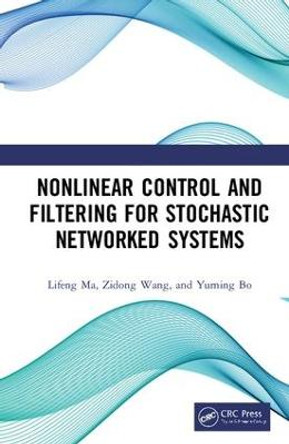Description
A modern mathematical approach to the design of communication network architectures, algorithms and protocols, blending control, optimization, and stochastic network theories.
About the Author
R. Srikant is the Fredric G. and Elizabeth H. Nearing Endowed Professor of Electrical and Computer Engineering at the University of Illinois, Urbana-Champaign, and is frequently ranked as among the university's best teachers. His research interests include communications networks, stochastic processes, queuing theory, information theory and game theory. He has been a Distinguished Lecturer of the IEEE Communications Society and is a Fellow of the IEEE. Lei Ying is an Associate Professor in the Department of Electrical and Computer Engineering at Arizona State University and formerly an Assistant Professor at Iowa State University. His research interests include stochastic networks, wireless networking, big data, peer-to-peer networks and cloud computing.
Reviews
'This book by Srikant and Ying fills a major void - an analytical and authoritative study of communication networks that covers many of the major advances made in this area in an easy-to-understand and self-contained manner. It is a must read for any networking student, researcher, or engineer who wishes to have a fundamental understanding of the key operations of communication networks, from network dimensioning and design to congestion control, routing, and scheduling. Throughout the book, the authors have taken pains to explain highly mathematical material in a manner that is accessible to a beginning graduate student. This has often required providing new examples, results, and proofs that are simple and easy to follow, which makes the book attractive to academics and engineers alike. A must have networking book for one's personal library!' Ness B. Shroff, Ohio State University
'Communication Networks provides a deep, modern and broad yet accessible coverage of the analysis of networks. The authors, who made many original contributions to this field, guide the readers through the intuition behind the analysis and results. The text is ideal for self-study and as a basis for a graduate course on the mathematics of communication networks. Students in networking will benefit greatly from reading this book.' Jean Walrand, University of California, Berkeley
'Communication Networks, by Srikant and Ying, provides a mathematically rigorous treatment of modern communication networks. The book provides the essential mathematical preliminaries in queueing theory, optimization and control, followed by a rigorous treatment of network architectures, protocols and algorithms that are at the heart of modern-day communication networks and the Internet. It is the best textbook on communication networks from a theoretical perspective in over 20 years, filling a much needed void in the field. It can be an excellent textbook for graduate and advanced undergraduate classes, and extremely useful to researchers in this rapidly evolving field.' Eytan Modiano, Massachusetts Institute of Technology
'This book presents a view of communication networks, their architecture and protocols, grounded in the theoretical constructs from optimization and queuing theory that underpin the modern approach to the design and analysis of networks. It is a superb introduction to this approach.' Frank Kelly, University of Cambridge
'This textbook provides a thoughtful treatment of network architecture and network protocol design within a solid mathematical framework. Networks are required to provide good stable behavior in random environments. This textbook provides the tools needed to make this happen. It provides needed foundations in optimization, control, and probabilistic techniques. It then demonstrates their application to the understanding of current networks and the design of future network architectures and protocols. This is a 'must' addition to the library of graduate students performing research in networking, and engineers researching future network architectures and protocols.' Donald F. Towsley, University of Massachusetts Amherst
'Chapters follow the logical flow of designing layers of the network. Each chapter brings another aspect of network modeling. Although many algorithms are presented in the form of pseudo-code only, no clarity is lost and the book can be recommended to programmers seeking a solid reference ... Exercises are interesting and feel like real research problems. With solutions available to instructors, this book is also an excellent choice as a textbook for a performance evaluation course. The most appreciated feature of this work is its freshness: all the examples and exercises are up to date. This makes classic theories more attractive to students, who can see the real applications of complex mathematics, and motivate[s] them to dive into the exciting world of network optimization and control.' IEEE Communications Magazine
Book Information
ISBN 9781107036055
Author R. Srikant
Format Hardback
Page Count 363
Imprint Cambridge University Press
Publisher Cambridge University Press
Weight(grams) 930g
Dimensions(mm) 253mm * 193mm * 20mm






